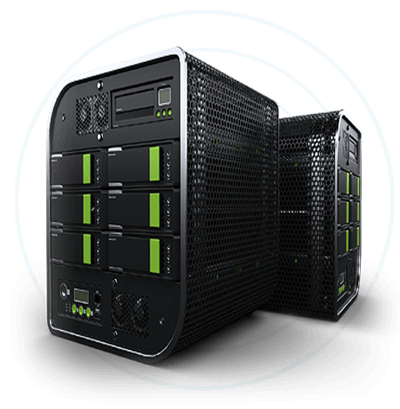What is a Dedicated Server?

While there are a few different ways you can choose to host your site, two commonly used types of servers are shared servers and dedicated servers. A shared server, as its name suggests, is shared with other web clients. With a dedicated server, however, your site is the only one that will be hosted on the server.
Below are some factors to consider when considering a dedicated server, and the comparison between the two types.
Dedicated vs. shared hosting
Some differences between dedicated and shared hosting. Here are some points to consider when deciding which is right for your business.
Cost
If you have a shared server with other websites, you’ll share the costs of operating that server with them. Having a dedicated server means you’ll be paying the entire cost to run the server and for hardware upgrades, software and the possibility of staff to maintain the server. The costs are higher with a dedicated server, but you get more options.
Bandwidth
Sharing a server means sharing the resources of the physical server, including bandwidth, memory and processing. If another website hosted on the server is generating a lot of traffic, it may slow down the speed of your site. If your site does not expect a lot of traffic, this may not be as big a problem; but for online shopping, this may affect the speed in which your clients can access the pages. On a dedicated server, all the bandwidth and processing power belongs to your site alone.
Security
On a shared server, it’s the responsibility of the hosting company to install firewalls, malware software and all server security programs. When operating a dedicated server, it’s your responsibility to install the security software you want. Because you’re the only user on the server, there is less of a chance of viruses or a security breach from other sites.
Tech experience
Like with security, on a shared server it is the responsibility of the hosting company to take care of the more technical needs of the server. Dedicated server clients need to have more tech knowledge in order to operate in server administration and management.
Control
The biggest advantage to a dedicated server is having all the control. Ultimately, with a shared server, the hosting company has all responsibility and makes the choices for its clients. A dedicated server gives you all the flexibility to choose the programs to give your site the optimal operational performance.
Which is best for you?
When it comes to making an informed decision on what is the best type of server for your needs, you’ll need to understand your business’s budget and operational needs.
For smaller businesses, a shared server will keep costs down and take care of some of the technical aspects, but limits your control and may slow down your site.
A dedicated server will cost more and require more tech knowledge. However, it gives you the flexibility to run the server your way and won’t have your site slowed down by the others hosted on a shared server. You’re able to control your security measures, the software that it runs on and the server’s technical limitations. If you’re planning on generating a lot of web traffic or needing more data and bandwidth, a dedicated server is the way to go.
Pros and cons of dedicated server hosting
To summarize the points above, these pros and cons of using dedicated servers.
Pros:
- High uptime percentage.
- Better performance.
- More reliability.
- Better security.
- Greater flexibility.
- Unlimited access.
Cons:
- Increased cost.
- Not recommended for small businesses or sites with low traffic.
- Requires technical knowledge/experience.

